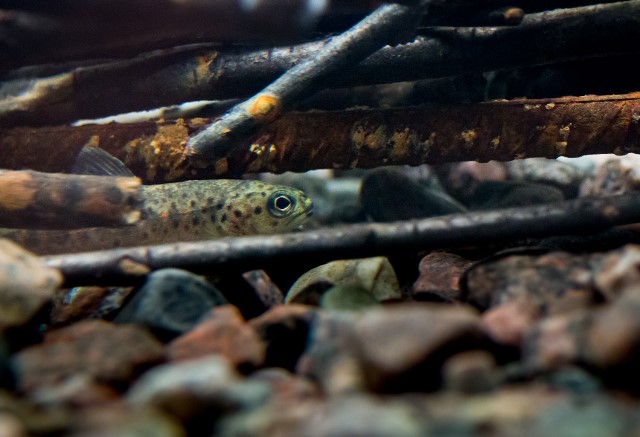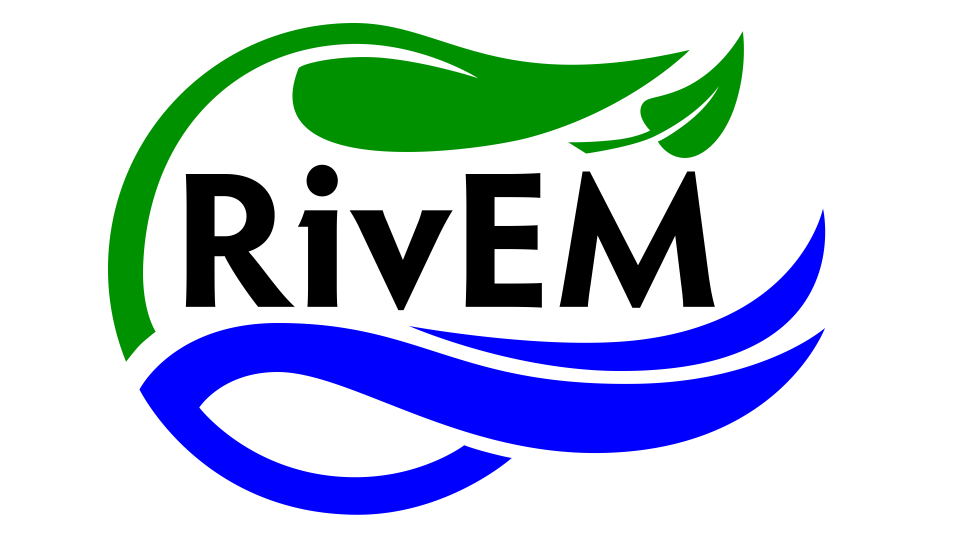Åsa Enefalk, Ari Huusko, Pauliina Louhi and Eva Bergman recently published the paper “Fine stream wood decreases growth of juvenile brown trout (Salmo trutta L.)” in the journal Environmental Biology of Fishes. In the abstract, the authors write:

A juvenile brown trout (Salmo trutta) hiding in fine stream wood.
“In this study, the growth rate, gut fullness, diet composition and spatial distribution of brown trout was compared between artificial channels with and without fine wood (FW). Access to FW resulted in significantly lower brown trout growth rates over the study period from late summer to early winter as water temperatures declined from 17 °C to 1 °C. Access to FW resulted in minor differences in occurrence of the most common taxa found in brown trout diets, except for chironomid larvae which were found in c. 60% of the brown trout guts from control treatments but in only 30% of the guts from FW treatments in early winter. Diet consisted primarily of case-bearing and free-living Trichoptera larvae, Asellus, chironomid and Ephemeroptera larvae. Brown trout gut fullness was not significantly affected by access to FW bundles. Brown trout aggregated among FW but were more evenly distributed in channels lacking it. Our results suggest that juvenile brown trout use FW as a shelter at a wide range of water temperatures, and that this behaviour may result in reduced growth rates during their first fall and the onset of their first winter. We also show that prey availability and the composition of brown trout diet changes from late summer to early winter and that FW has a small but significant effect on brown trout diet composition.”
Read the paper here, or contact any of the authors.


